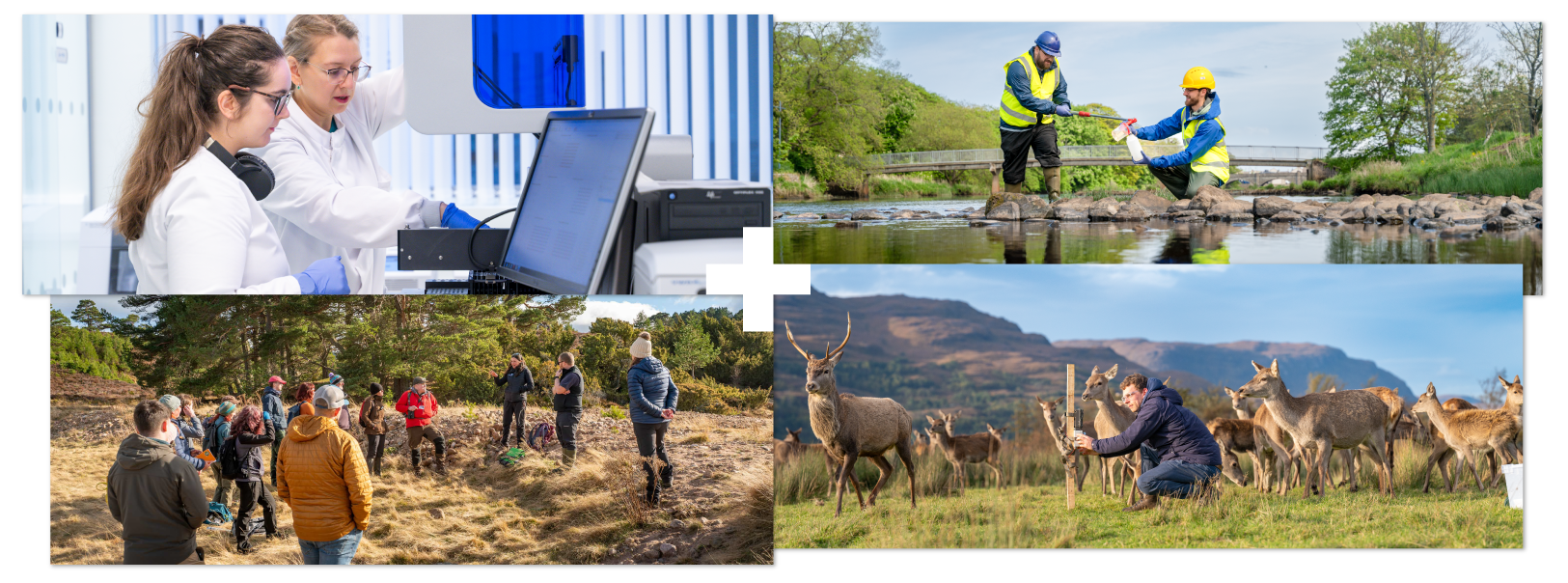Fully funded PhD studentships for 2025/26

We are the only University based in the Highlands and Islands of Scotland – and our innovative approach to learning and distinctive research is enriched and inspired by the people, natural environment, economy, culture and heritage of the Highlands and Islands.
Learn more details about the University's research.
The 3½ year full-time studentships are open to UK and International applicants and cover:
- Annual tuition fees at Home (UK) rate.
- Annual tax-free stipend at UKRI level. Year 4 stipend (6-months) will be pro-rata.
- Funding for research training.
Available projects
An award will be available at UHI for 2025/26 entry for the following PhD projects.
Please contact the lead Supervisor for any academic queries.
For general enquiries, please contact gradresearch@uhi.ac.uk
Key Information
Why UHI?
Why UHI?
Our distinctive partnership of locally based independent colleges and research institutions is rooted in communities, but with national and international reach and significance. Our results from the UK-wide 2021 Research Excellence Framework (REF) confirm our strong position in the research landscape of the UK, with nearly three quarters of the research publications we submitted for assessment deemed to be world leading or internationally excellent. Read more about REF here.
Our impact ratings (a measure of our reach and influence in business and our communities) also show how strong our research influence is, and our research degree students are a core part of this.
You will be part of this growing community, guided by subject experts, building knowledge and skills, in a supportive and collaborative research environment.
Eligibility Criteria
Eligibility Criteria
New applicants should normally have, or expect to have by 30 September 2025:
- A postgraduate master's degree from a degree-awarding body recognised by the UK government, or equivalent, or
- A first or upper second-class honours degree from a degree awarding body recognised by the UK government, or equivalent, or
- Other qualifications or experience that affords sufficient evidence of an applicant’s ability to work at the academic level associated with doctoral study.
- If English is not your first language, and you do not have a prior UK degree, you will need IELTS (Academic) score of 6.5 minimum, with a minimum 6.0 in each component, or equivalent. This must have been gained no more than two years prior to the proposed project start date. For more information see Entry requirements and visa advice - English language requirements (uhi.ac.uk)
Please also note:
- Current UHI research degree students are not eligible to apply.
- Awards are for full-time study only.
- You will be expected to live within a reasonable travel time of the project’s campus location; distance learning study cannot be supported for this award.
How to apply
How to apply
It is the applicant’s responsibility to submit the required documents in a single file, ensuring they are submitted electronically by email to gradresearch@uhi.ac.uk
Application documents:
- UHI PhD studentship application form, part 1 UHI Studentship Application PART 1
- Copies of all official qualification certificates and transcripts. If your official certificates/transcripts are not in English, they must be accompanied by a fully certified translation provided by a professional translator/translation company.
- If English is not your native language, and you have not gained a prior UK degree, an English language test certificate (IELTS or equivalent with overall score of 6.5 and no element below 6.0) gained within the two years prior to the planned start date.
- If you are not a UK national, a copy of the photo page of your passport, also include any pages which indicate a right of abode in the UK.
- References - please ask your referee to complete the Reference Form; these are not required with the application but will be required for shortlisted applicants and must be provided by the applicant before their interview. References should be from professional or academic contacts and cannot be from family members or friends. At least one reference should be from someone who knows you from your most recent academic qualification. UHI Studentship PGR Reference Form
Please note:
- Incomplete applications and/or applications received after the deadline cannot be considered.
- If references are not available by the time of application deadline, these can be sent through separately, however applicants are responsible for ensuring these are submitted to gradresearch@uhi.ac.uk by the above deadline, or as soon as possible thereafter.
- If you are selected for an award, you will be required to start in October 2025; the award cannot be held over to another academic year.
Contact Details
Contact Details
Completed applications and administrative queries - gradresearch@uhi.ac.uk
If you have an academic query, please contact the Lead Supervisor of your chosen project – see contact details in ‘available projects’.